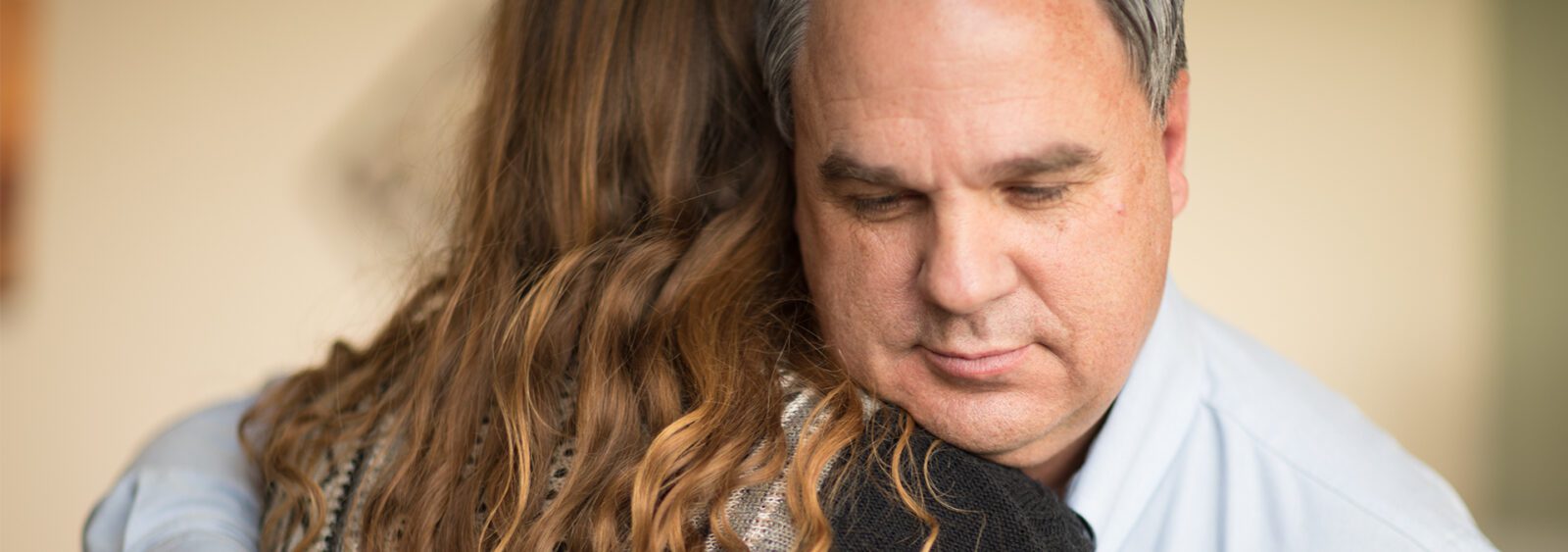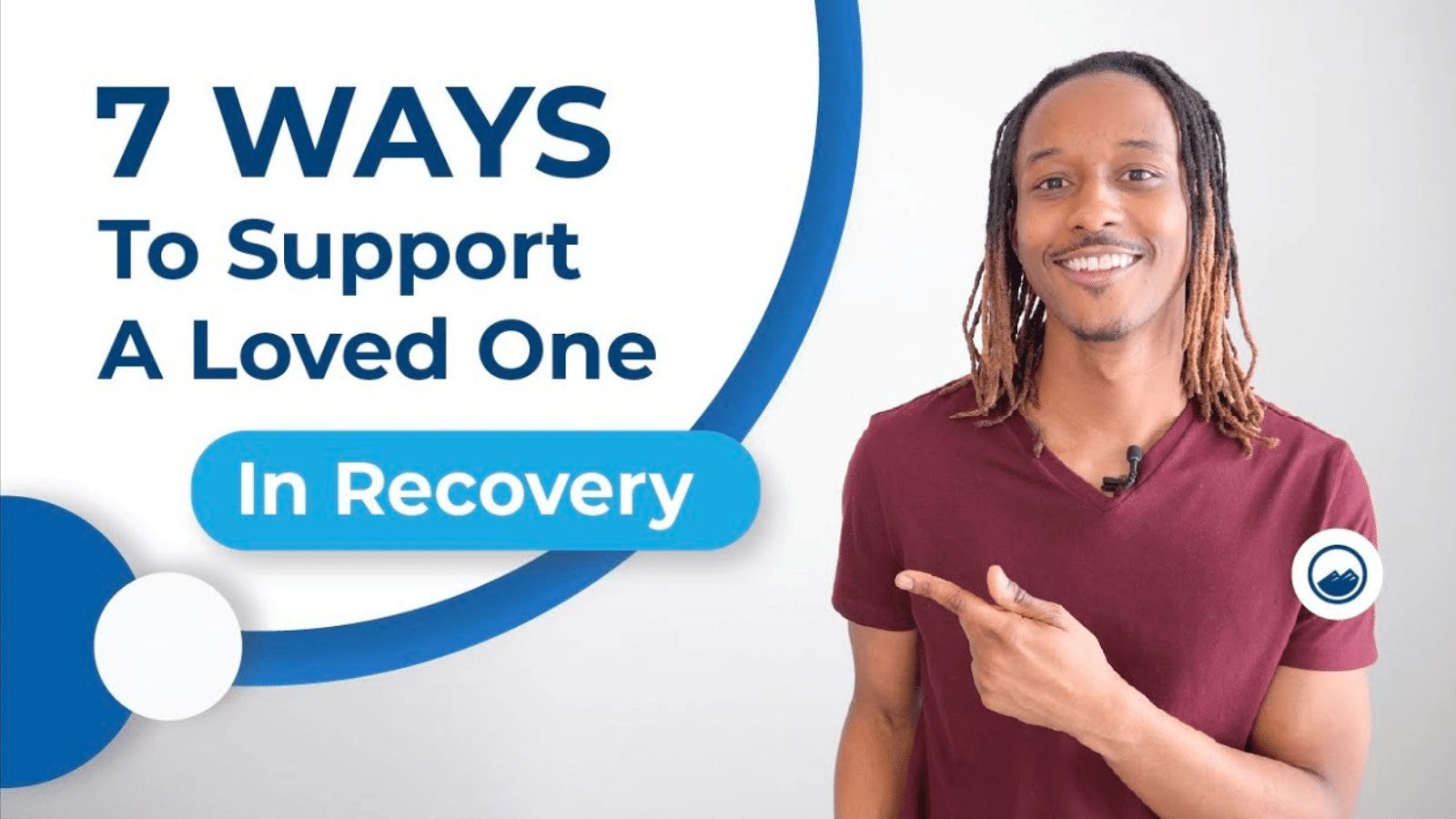How Important is a Support System?
There’s a quote we hear a lot in recovery: “the opposite of addiction is connection”. This quote by Johann Hari speaks briefly to the importance of having a community of like-minded, sober, and supportive individuals around you, especially during early recovery.
Whether you’re close to the person in recovery or slightly more removed, making it known that you’re available for a late-night chat or a mid-day walk will likely mean the world to them.
Everyone’s journey to recovery will look a little bit different, and every individual will have a specific set of needs, but everyone needs a support system and someone they can rely on.
8 Ways to Support Your Loved One
1. Accept Them Without Judgement
It’s not uncommon for individuals in recovery to feel judged or ridiculed by people who have never experienced addiction. In an effort to help them feel safe and loved, try to be accepting.
Let them know that you’re always there for them and that even though you don’t have firsthand experience, you will always try to support them without judging their experiences or making assumptions about what they’ve been through.
2. Don’t Walk on Eggshells
People in recovery aren’t fragile, nor are they broken. They do, however, just like everyone else, have their shortcomings, triggers, and things they struggle with. Don’t avoid talking to your loved ones about difficult topics or things that you think may upset them.
If it’s important, let them know you need to discuss something, and then have a calm, rational, and honest conversation with them.
3. Create a Substance-Free Environment
People in recovery are usually living a completely sober life. Even if they say it’s okay for you to drink or use substances around them, it could be triggering for them. Skipping a glass of wine with dinner while you’re with them is an easy way to help them feel not singled out as “the sober one”, and also sets a good example for them.
Not keeping alcohol, prescription, or illicit drugs in the home is also important, especially if you live with the individual in recovery.
4. Ask Them How You Can Help
The best way to support someone is to ask them how they need to be supported. Ask them specifics about the personal goals they’ve set, if you can hold them accountable, and what would be the best way to help them. They’ll have the most information and best ideas about what they need and how you can help.
5. Be Patient
Sometimes things that seem simple to you, like going to the grocery store that sits next to a liquor store, might not be simple for someone in recovery.
As they begin their new life as a sober individual, they’ll have to make a lot of changes to their lifestyle. Let them know that you’re there to support them as they learn how to be sober, and that you’re happy to support them however you can.
6. Don’t Enable Behaviors or Relapses
It can be easy to ignore the signs that your loved one is using or that they’re engaging in unhealthy behaviors again, but it won’t help either of you. Let them know early on that if they relapse, you’ll help them seek treatment and resources, but won’t be able to help them financially, and won’t allow your life to be consumed by their use.
This “tough love” approach may be difficult for you to say and them to hear, but it’s important that they know where you’re at as a member of their support system.
7. Set Boundaries
Boundaries are something that people in active addiction don’t have a lot of experience with, but they are something that every healthy relationship must-have.
Setting limits about the amount of time you spend with them, enabling behaviors, financial support, and the way they treat or speak to you are all completely reasonable.
Some examples of healthy boundaries to set include:
- Not allowing drugs or alcohol in your home or around you
- Not allowing friends or acquaintances with active substance use disorders into your home
- Not covering for or lying for your loved one, regardless of the circumstances
- Asking your loved one to only speak to you in a respectful way, and to avoid insulting or ridiculing you
- Not supporting your loved one financially
- Refusing to bail a loved one out of jail or paying for a lawyer if they get arrested
It’s important to communicate these boundaries early on in their recovery and to make sure that you don’t allow for leniency or make exceptions.
It may seem harsh, but boundaries are there for a reason, and that is to keep you and your loved one emotionally and physically safe.
8. Educate Yourself
Learning about addiction and sobriety is an important part of being a support person.
Stay up to date on the coping skills they’re learning, familiarize yourself with the local recovery community meetings in your area, and knowing the signs of relapse are all great ways of educating yourself, and ultimately, supporting your loved one.
Taking Care of Yourself
Taking care of a loved one in recovery doesn’t mean you get to stop taking care of yourself. If anything, it means you need to make more of an effort to take care of yourself physically, mentally, and spiritually.
You can’t be a caregiver, helper, or even a member of a support system if you’re not taking care of yourself.
Setting boundaries with your loved one is crucial to the well-being and mental health of both of you. Let them know that this has been a difficult process for you, and the effect that their addiction has had on you.
It’s also okay to let your friend or loved one know if you need to take a time-out and spend some time reconnecting with yourself. If you’re especially close with the person, it may even be helpful to start seeing a professional counselor or attending Al-Anon or Nar-Anon meetings.
Needing additional support is nothing to be ashamed of, and sets a great example for your loved one. You can never have too much support or too many resources!
Resources For Family & Friends
-
Sandstone Care Parent Support Group
Sandstone Care offers a once-weekly, free support group for parents and other family members of teens and young adults who are struggling with addiction. Attendees support and build one another up as they discuss navigating the challenges of addiction, substance abuse, and mental health.
-
Al-Anon
Al‑Anon is a mutual support program for people whose lives have been affected by someone else’s drinking. By sharing common experiences and applying the Al-Anon principles, families and friends of alcoholics can bring positive changes to their individual situations, whether or not the alcoholic admits the existence of a drinking problem or seeks help.
-
Alateen
Similar to Al-Anon, Alateen is a program for teens who have been affected by a family member’s alcohol dependency. Teens will discuss and share experiences, strengths, and hopes with each other as they seek to find effective ways of coping.
-
Nar-Anon
The Nar-Anon Family Group is primarily for those who know or have known a feeling of desperation concerning the addiction problem of someone very near to you. Attendees of these meetings understand that addiction is a disease, and work to realize that, while they are powerless over it, they must take care of themselves in the wake of their loved one’s dependency.







